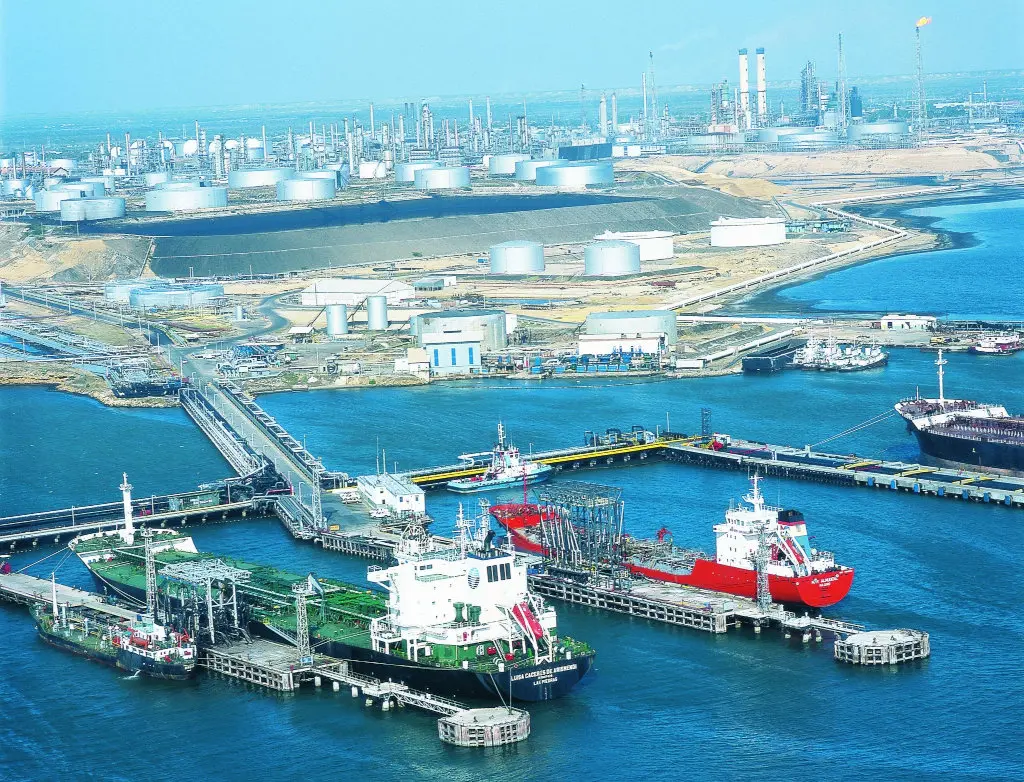
Venezuela’s crude production decreased in November as the country’s oil industry continues to struggle under US sanctions.
The latest OPEC report placed the output at 876,000 barrels per day (bpd) last month, as measured by secondary sources. The figure stood 20,000 bpd below October’s 896,000 bpd.
Venezuelan state oil company PDVSA reported a November production of 960,000 bpd, likewise down from 989,000 bpd the prior month.
Crude extraction and upgrading processes suffered in recent weeks following an explosion and fire at a major natural gas hub in eastern Venezuela. Authorities blamed sabotage for the incident and gradually restored operations. Though production remains near its highest since early 2019, PDVSA has not managed to surpass the 1 million bpd threshold.
Despite the output reduction, Venezuela’s exports rose by 10 percent month-on-month as PDVSA drew from existing inventories. Increased sales to China and other Asian customers led to a 974,000 bpd export figure, a five-year high. The country’s flagship Merey blend maintained a stable price at US $59.58 per barrel.
The Caribbean nation’s most important economic sector remains significantly hampered by economic coercive measures. Since 2017, the US Treasury Department has imposed financial sanctions, an export embargo, secondary sanctions and a raft of other restrictions to strangle the country’s biggest revenue source and trigger regime change.
In October 2023, the Biden administration issued General License 44 (GL44), a six-month waiver that effectively allowed Caracas to sell crude directly to global customers without unreliable intermediaries or levying discounts. Washington reintroduced wide-reaching sanctions in April after alleging that the Nicolás Maduro government had not fulfilled an agreement with the US-backed opposition.
US coercive measures, alongside threats of secondary sanctions, have hindered PDVSA’s efforts to secure foreign investment and exports. Following GL44’s expiry, the US Treasury Department warned international companies against dealing with Venezuela’s oil sector without a green light from its Office of Foreign Assets Control (OFAC).
India’s Reliance Industries was the only corporation to receive Treasury approval to purchase Venezuelan crude since April. Other Indian private and public firms expressed similar interest, with purchases through intermediaries cutting significantly into profit margins, according to reports.
During a recent visit to China, Venezuelan Vice President and Oil Minister Delcy Rodríguez reportedly sought to convince the China National Petroleum Corporation (CNPC) to resume direct purchases of Venezuelan crude. The state-owned Chinese enterprise suspended imports in 2019 over fears of secondary sanctions, instead acquiring Venezuelan oil via intermediaries.
In recent weeks, the Biden administration has sought to ramp up sanctions against Venezuela. In November, OFAC blacklisted 21 Venezuelan high-ranking government and military officials over their support for Maduro in the wake of the July 28 presidential elections. The South American nation’s electoral authorities declared Maduro the winner of the contest, an outcome that the Supreme Court later ratified.
In contrast, Washington has thrown its backing behind the hardline opposition’s victory claim, with Secretary of State Antony Blinken referring to former candidate Edmundo González as “president-elect.”
Blinken has issued threats of further measures, including a withdrawal of a license allowing US oil giant Chevron to operate in its Venezuela joint ventures. “Everything is on the table right now, including in terms of the licenses,” he said during a congressional hearing on Wednesday.
Chevron received a waiver to resume its Venezuela activities in late 2022. It has been periodically renewed. European firms Repsol, Eni and Maurel & Prom have expanded projects in Venezuela as well with Treasury approval. A removal of licenses could mean a 30-40 percent drop in foreign currency revenues, according to Ecoanalítica.
With Donald Trump set to take office for a second time in January, analysts have speculated about his Venezuela policy. The appointment of Marco Rubio, one of the fiercest supporters of regime-change efforts against Caracas, may signal a return to the first Trump administration’s “maximum pressure” campaign.
However, oil executives, bondholders and certain think tanks have urged the incoming administration to not repeat its past strategy. According to the Wall Street Journal, one proposal would see the US deport Venezuelan migrants while allowing PDVSA to increase sales to US refineries.
Similarly, the Atlantic Council and the Jack D. Gordon Institute for Public Policy have argued that the Trump White House should maintain the current sanctions and select waivers policy to increase US influence over Venezuela’s energy sector.
The Gordon Institute’s Brian Fonseca laid out an “America-first sanctions policy” consisting of further licenses for US corporations and expanded secondary sanctions against Venezuela’s other foreign partners. The policy paper additionally recommends leveraging sanctions and debt pressure to force privatizations that benefit US companies.